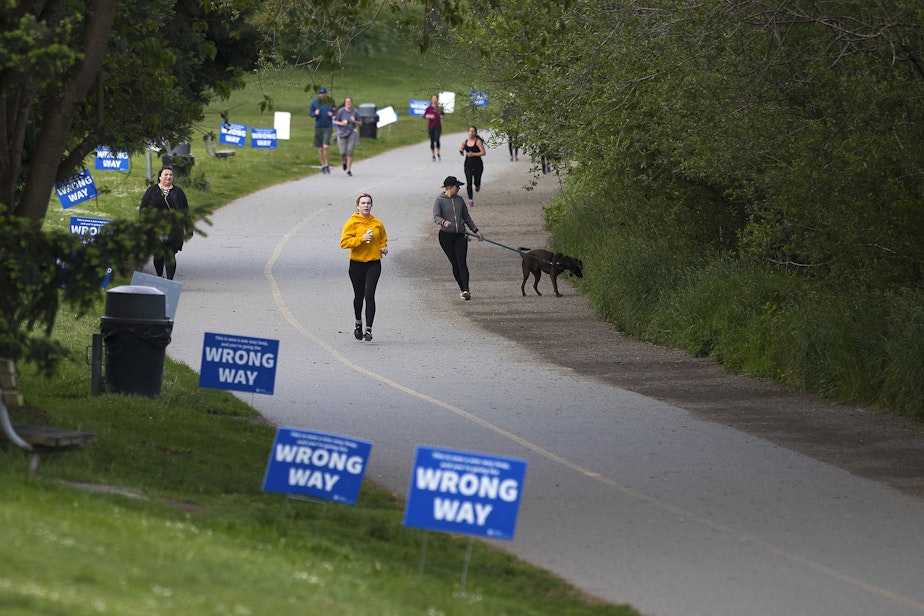How to return to exercise after having Covid: slowly

Advice floating around the internet recommends that people recovering from Covid not return to their previous exercise routines too fast. Online resources say taking it easy in the weeks after a Covid diagnosis can help prevent the brain fog, fatigue, shortness of breath, and other symptoms that can persist for months or even years for some people who contract the virus.
But that’s not good advice, says Dr. Janna Friedly, a rehab physician and the medical director of the clinic at the University of Washington that treats long Covid patients. Friedly says there’s no known link between returning to exercise shortly after having Covid, and developing long Covid.
But, she adds, there is a grain of truth in the advice to refrain from exercise, because exercise can cause inflammation, and inflammation is one of the possible causes of long Covid.
That’s why Friedly recommends that people recovering from Covid avoid what she calls “pro-inflammatory” exercise — things like high-intensity interval training or heavy weight-lifting. Instead, she says, people should focus on what she terms “restorative exercise.”
“I would say that focusing a little bit more on restorative exercise that’s more breathing exercises, stretching, gentle strengthening exercises and low-intensity aerobic exercise would allow you to recover in a way that’s healthier than avoiding exercise completely,” she said.
There’s no way to know how many people had Covid in recent months — many people tested at home and never reported their results — but anecdotally, the wave appears to have caught many, many people in the Puget Sound area, some of whom were vaccinated and boosted once or even twice.
The vaccine offers strong protection against hospitalization and death, but the newest studies show it does less to prevent long Covid. One study indicates that people who are vaccinated and boosted are only 15 percent less likely to develop long Covid than those who are unvaccinated.
That’s where all the advice comes in. People are looking for anything they can do to avoid lingering effects from their Covid diagnosis.
Exactly what causes long Covid is still an open question. Researchers are looking into whether it has to do with inflammation, people’s immune response, pockets of the virus that remain in the body, or something else.
But there’s no reason to skip the gym, says Dr. Jordan Metzl, a sports medicine physician in New York. He agrees with Dr. Friedly that there’s no evidence that inactivity will help people avoid long Covid — and not exercising can itself be bad for people’s health, in both the short and long term.
“Avoiding exercise altogether has its own risks: everything from mental to physical,” Metzl said. “I definitely would not recommend that. The therapeutic benefits of exercise are tremendous.”
Dr. Metzl agreed that it’s wisest to be slow and methodical as you return to exercise — to ramp up slowly and watch for “red flag” symptoms that could signal a deeper problem.
“You have to be a good body listener,” Metzl said. “If you feel fatigue, if you feel short of breath, if you feel faint, don’t keep pushing it. Covid is one of the few times I tell people to just take their foot off the gas pedal a bit and listen to your body as you return to activity.”
Metzl also said, if your symptoms are getting worse instead of better, or if any symptoms linger for more than a few weeks, it’s a good idea to talk to a doctor.




